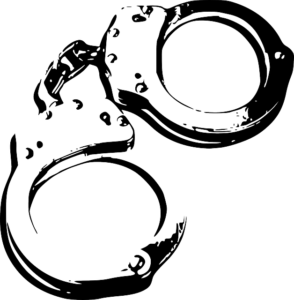The Strong Defense
You Deserve
Here’s All The Data You Need To Know On Computer Crime In Florida

Computer crime in Florida has become a growing concern, and the Florida laws on it have come into play in more and more situations. Here’s what you need to know to avoid running afoul of Florida’s computer crime laws.
Basics
Computer crime in Florida is defined in the Florida Computer Crimes Act. The Act divides computer crime into two areas:
- crimes against intellectual property, and
- crimes against computer users.
Most (but not all) of the acts in both these areas are felonies.
Intellectual Property
Florida law on intellectual property computer crimes penalizes two different acts – introducing a computer virus and destroying data. The elements prohibiting spreading a computer virus are that a person
- must intentionally
- release a computer contaminant, or
- render unavailable or otherwise modify computer data
- without authorization.
The system into which the program is introduced can be a stand-alone computer, a computer network, or some electronic device.
Florida also protects intellectual property against other unauthorized conduct. If a person
- intentionally
- destroys data on a computer or computer system
- without authorization
they have committed an intellectual property crime in Florida. Here too the computer may be stand-alone, on a network, or it may be an electronic device.
However, if the data accessed is a trade secret or is confidential for some other reason, that act is also criminalized in the Florida statutes on computer crime.
Offense Against Computer Users
The State of Florida punishes computer crimes that victimizes individuals using computers as well. Several acts fall under this section of the statute. Among them are intentionally
- accessing a computer without authorization,
- disrupting data flow to another’s computer,
- destroying computer equipment,
- destroying the computer or computer network itself,
- introducing a virus into a computer,
- monitoring activity on another’s computer without authorization, or
- modifying a computer without authorization.
Penalties
The penalty for computer crimes in Florida can be quite harsh. Crimes against intellectual property are a third degree felony, punishable by up to five years and a fine of up to $5,000. However, if prosecutors show that the computer crime was done in order to commit some other fraud, the crime becomes a second degree felony, punishable by up to 15 years in prison and a fine of up to $10,000.
In the case of crimes against computer users, the crime is a third degree felony unless the crime
- causes more than @$5,000 in damage,
- involves fraud,
- interrupts government functions or communications, or
- involves public transit
making it a second degree felony.
If the act endangers life or affects medical care, the computer crime is a first degree felony, which could be punished by a sentence of up to 30 years or life and a fine of $10,000.
Defenses
The main defenses to computer crime in Florida are twofold. First, a defendant may contend that he or she had authorization of the computer’s owner to access or modify it. Another defense to computer crime in Florida is that of lack of intent – the defendant may not have accessed or modified the computer on purpose or may have done so without knowing it.


